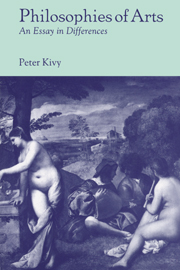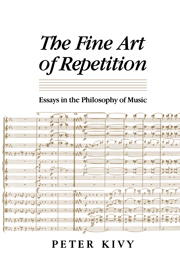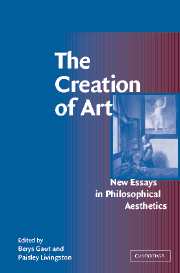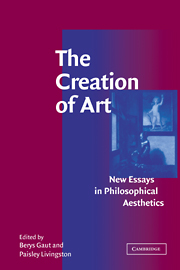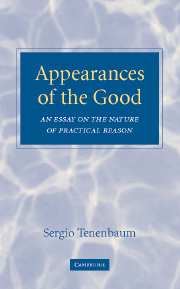Philosophies of Arts
Since the beginning of the eighteenth century, the philosophy of art has been engaged in the project of defining fine arts by finding out what they have in common. Peter Kivy's purpose is to trace the history of that enterprise and argue that the definitional project has been unsuccessful, with absolute music as the continual stumbling block. His fruitful change of strategy entails exploring the differences among the arts instead of engaging in an obsessive quest for sameness. He presents five case studies in both literature and music.
- Vivid, accessible prose style
- No technical knowledge of music needed
- Topic of broad interest across the humanities
- An author recognised as one of the pre-eminent figures in the philosophy of art. He has published several books including The Fine Art of Repetition with Cambridge
Reviews & endorsements
"Peter Kivy's book is an extraordinary work that combines a great depth of scholarship and forceful philosophical analysis and argument with a rich variety of engaging illustrations from the world of fine and literary arts. He not only provides the reader with a detailed historical analysis of the history of aesthetics from Plato to Danto and Walton, but in his pursuit of the differences between the arts, introduces a novel and compelling approach that will no doubt influence current debates. This work will be especially helpful to both professionals and advanced students of aesthetics." Mark Starr, Review of Metaphysics
"There are few writers on philosophical aesthetics who are such a pleasure to read as Peter Kivy, so a new book by him is always reason for celebration...his book is always fresh and combative, analytic philosophy of art at its best." The Philosophical Review
Product details
June 1997Paperback
9780521598293
260 pages
230 × 153 × 17 mm
0.4kg
Available
Table of Contents
- Preface
- 1. How We Got Here, and Why
- 2. Where we are
- 3. Reading and representation
- 4. On the unity of form and content
- 5. The laboratory of fictional truth
- 6. The quest for musical profundity
- 7. The liberation of music
- Epilogue
- Notes
- Bibliography.

